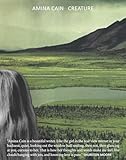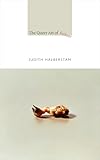I began 2018 with the earthquake room by Davey Davis, and inadvertently set the tone for the rest of the year. Immutable dread permeates the novel, which tells the story of a disintegrating queer relationship against the backdrop of a very-near-future Oakland in which the threat of devastating natural disaster looms. Yet amidst the pre-apocalypse, life—aka dyke drama—must go on. The novel’s unfortunate prescience struck me this week, as I hid in my apartment from the Most Unhealthy Air Quality in the World, perusing an Instagram feed that alternated between respiratory mask selfies and personal ads (“NON-TOXIC MASC 4 RADICAL TENDERNESS”). I couldn’t help feeling as though Davis’s vision of the very-near-future had in fact already arrived.
Anne Garréta’s Not One Day followed, an archive of desire and liaisons that deserves to be remembered for more than this line, but it was the one that stuck with me, perhaps because the banality of death felt more tangible this year: “Life is too short to resign ourselves to reading poorly written books and sleeping with women we don’t love.” Then, After Delores, Sarah Schulman’s first book, a pulp murder mystery about a jilted waitress nursing her broken heart in dimly lit bars, which I happened to read while nursing a broken heart in a dimly lit bar.



In the spring, I read A Lover’s Discourse by Roland Barthes, though it was probably the wrong time. By then my broken heart had healed into a cold, callous thing, and Barthes’s obsessive lamentations, however brilliant, left me unmoved. A note I wrote in my phone from that time reads: “writing toward The Other / but what about / The Other’s / discourse / The Other didn’t ask / to be watched like this.” I dipped into Carmen Maria Machado’s collection, Her Body and Other Parties, and was most compelled by her story “Inventory,” which felt like the offspring of Davis’s and Garréta’s books, as it was also an archive of sexual encounters, set in another near-future apocalypse. Apparently it is a truth universally acknowledged that not even the end of the world will quench our libidos. I finished Estrangement Principle by Ariel Goldberg, which had been lingering half-read on my shelf since 2017 (the inscription on the inside cover, written by an ex-lover: “In case having one nonbinary masc white Jewish person constantly musing about what it means to call art ‘queer’ hanging around wasn’t enough for you, here’s a whole book of that same thing! Xox, ———”).

I got coffee with a friend who recommended José Esteban Munoz’s Disidentifications, after I admitted to him that I generally read too many books by white women. I immediately ordered a copy and blasted through the first hundred pages, finally finding language for the many cross-identifications I’d been practicing all my life. But then, summer came. Summer seems on the surface to offer myriad opportunities for uninterrupted reading; international flights; camping trips by the river; lazy Saturday mornings tanning in the backyard hammock. But who can actually find time to read when parties—and their attendant hangovers—beckon? I took a trip in June to Toronto, where I discovered a wonderful bookstore (Glad Day Bookshop), but read neither the books I brought nor the ones I bought. In keeping with the season, I did find myself at a pride event, drunk on vodka cranberries, crying in the basement of a college campus that looked like Hogwarts; queer culture is nothing if not a second/perpetual adolescence.


Autumn brought better conditions for reading: crisp air, etc., etc., hot cups of tea, etc., etc., and most important, fewer social distractions. I purchased on eBay, of all places, I Go to Some Hollow by Amina Cain; I had been searching for it in used book shops since 2015, after I read Cain’s stunning, ethereal collection, Creature. I had even emailed the publisher (Les Figues), to no avail. Cain’s highly internal, experimental short short fictions are brief blinks at relationships, which, in her signature style, are as uneventful as they are quietly devastating. I followed it with an appropriate seasonal choice—White is for Witching by Helen Oyeyemi, a haunted-house-story-cum-bildungsroman published in 2009 that remains relevant as ever in 2018. The ghosts, as it turned out, were (spoiler alert!) a metaphor for anti-Black racism and xenophobia against refugees.

And then, cooped up in my home this week with my roommate’s air filter on blast, I read The Queer Art of Failure by Jack Halberstam. A particular refrain is repeated throughout the book, a quote from Quentin Crisp, which I think could appropriately grace a motivational poster embodying the spirit of 2018: “If at first you don’t succeed, failure may be your style.”
More from A Year in Reading 2018
Do you love Year in Reading and the amazing books and arts content that The Millions produces year round? We are asking readers for support to ensure that The Millions can stay vibrant for years to come. Please click here to learn about several simple ways you can support The Millions now.
Don’t miss: A Year in Reading 2017, 2016, 2015, 2014, 2013, 2012, 2011, 2010, 2009, 2008, 2007, 2006, 2005
The post A Year in Reading: Tara Marsden appeared first on The Millions.
Source : A Year in Reading: Tara Marsden












